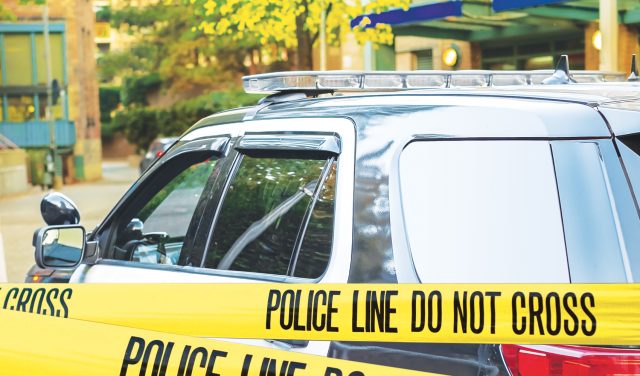
Boulder’s Police Oversight Panel (POP) last week enacted a partial work stoppage, even as they were warned by city attorneys that doing so could cost them their seats on the watchdog group. The move was necessary, members argued, to send a message to City Council and prevent resignations in protest of the ouster of panelist Lisa Sweeney-Miran.
“This vilification of one of us was an attempt to intimidate all of us,” said panelist Sam Zhang. “As if we would just robotically continue this oversight in exactly the way that they want, which is apparently not very critical at all. It’s not really a question of whether we suspend the work or not. The work is going to be disrupted no matter what, because of Council.”
Under the terms of the stoppage, the panel will stop reviewing new cases of alleged police misconduct until the ordinance governing the POP’s work can be amended. The panel ultimately voted 8-1 to proceed.
Jason Savela, the lone dissenting vote, said continuing the work was essentially to build community trust in the panel.
“As a public defender, I know there are cases we are not seeing, and we’re not seeing them because people don’t trust that process,” Savela said. “I’m more upset that people who are suffering violence are not even willing to bring their issue to us. I would rather us be available for them to talk to than not be here.”
City attorneys warned panelists that they could be removed for their decision, if a code of conduct complaint is filed and upheld against them. That could be avoided by asking City Council for permission to stop work, Erin Poe said during Wednesday’s meeting.
“As a product of the civil rights movement and many protests, I can’t recall one where we got permission,” said panelist Madelyn Strong Woodley. “Change happened as a result of taking some very drastic actions.”
Here’s a rundown of what this means for police oversight in the city:
What will the panel do during the work stoppage?
The POP will not review any new complaints or allegations of misconduct. They will finish out the dozen they’ve already committed to review.
No committees will meet, either, except those necessary to work on updating the ordinance that guides the oversight panel’s work. Two members of the POP, to be determined, will serve on that workgroup.
What happens to complaints against the police in the meantime?
The Independent Monitor will continue to review cases of alleged misconduct. The monitor can recommend disciplinary actions, as the panel does. Boulder’s temporary monitor is Florence Finkle, who works with Los Angeles-based OIR Group and is a board member for the National Association for Civilian Oversight of Law Enforcement.
Any complaints filed during the work stoppage would “most likely be closed” by the time the POP resumes, Finkle said.
How long will the stoppage last?
As long as it takes to update the ordinance. Farah Muscadin, a consultant hired by the city to help the panel in the absence of a permanent monitor, laid out a possible timeline.
The work will begin this week; a community feedback session on the ordinance is tentatively scheduled for the week of June 19. The workgroup hopes to meet with City Council for an August study session, with first reading of the ordinance in September and a vote and passage the first week of October.
Who will be in the workgroup?
Two members of POP, a representative from the Boulder Police Department, a city attorney, representatives from the Boulder County NAACP branch and El Centro Amistad — the community organizations who had members on POP’s selection committee — and Martha Wilson, a former panelist who began working on ordinance changes after resigning in November.
An attorney not affiliated with the city may join the group as well. POP voted to request that the city pay for outside counsel.
“We’ve requested independent counsel several times,” panel member Hadasa Villalobos said, but those requests have not been honored.
“That hasn’t been a, ‘No, you can’t do it,’” Leonard clarified. “It’s been a ‘Pick your legal counsel and set your budget.’”’
What parts of the ordinance might be changed?
That will in part be determined by the process. So far, two areas have been specifically called out by current and former panelists and community members: The need for an independent attorney to advise POP, and changes to the language around bias that were the crux of Sweeney-Miran’s dismissal.
What happens next?
Although the panel is not asking the city’s permission to stop work, Council may still discuss it. As of yet, it has not been added to the agenda.
If a code of conduct complaint is filed, the Council will have to take action. Complaints must be investigated, either internally or by an outside party.
“I don’t know what’s going to happen next,” Poe said. “This is a unique situation … we’ll see what direction [council members] want to take.”














